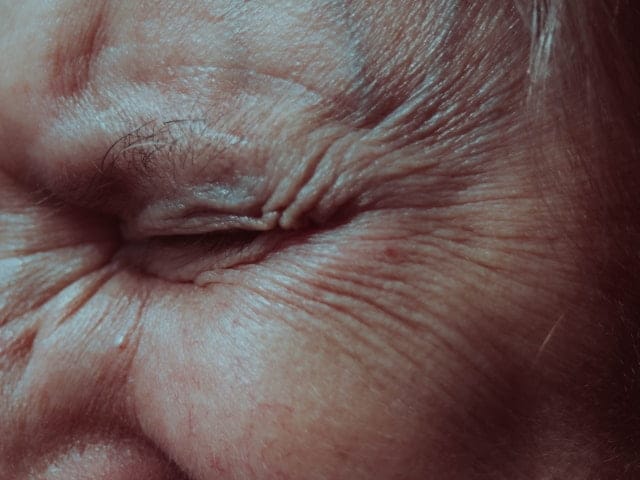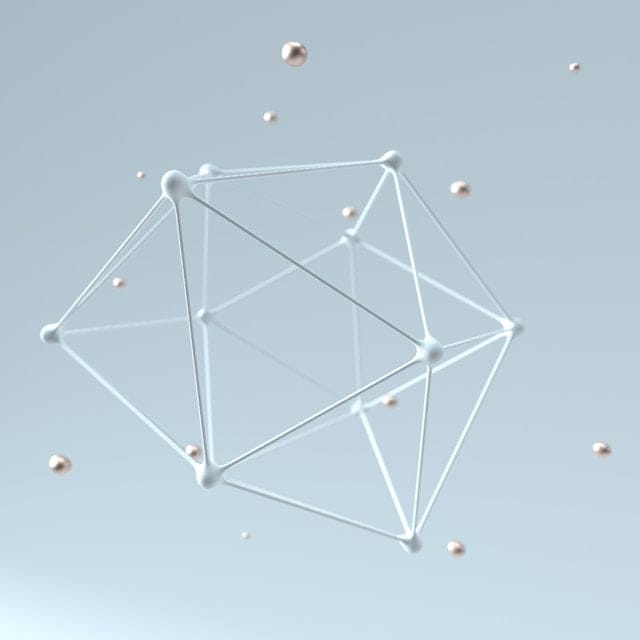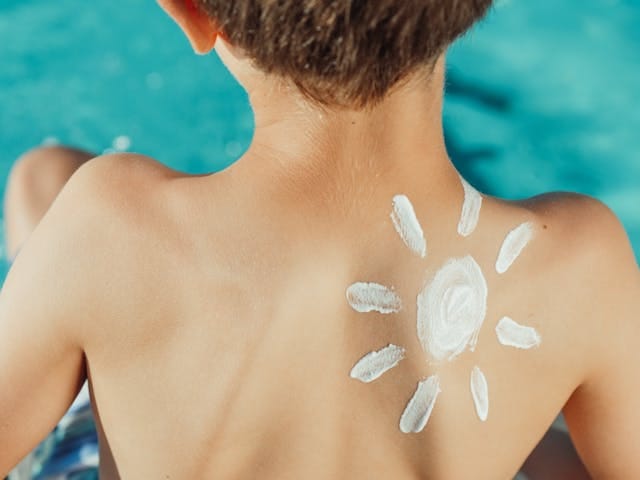- Dry Skin: One of the earliest signs of collagen loss in the face is increased dryness. As collagen diminishes, the skin’s ability to retain moisture decreases, leading to a dry and rough texture.
- Uneven Skin Tone and Dullness: Collagen loss can cause melanin production to become uneven, resulting in dark spots and a dull, lackluster complexion.
- Eye Bags and Sagging Skin: With less collagen, the skin loses its firmness and elasticity, leading to sagging under the eyes, around the chin, and on the neck.
- Wrinkles: Fine lines and wrinkles such as smile lines, crow’s feet, and marionette lines are common signs of collagen loss in the face.

Collagen is the main structural protein in the skin, acting like scaffolding to keep the skin smooth and wrinkle-free. When collagen decreases, the elastic network that supports the skin breaks down. This leads to visible signs of aging such as dryness, rough texture, sagging, wrinkles, enlarged pores, dullness, and pigmentation.

Causes and Solutions for Collagen Loss in the Face
Causes:
- Age: Collagen production starts to decline in the early twenties. As we age, collagen levels drop, making the skin appear thinner and less supported.
- Sun Exposure: UV rays from the sun break down collagen fibers and accelerate wrinkle formation.
- Environmental Factors: Pollution and other environmental factors contribute to the breakdown of collagen.
- Lifestyle: Smoking, poor diet, and lack of sleep can also reduce collagen levels.
Solutions:
- Topical Retinoids: Retinoids, derivatives of vitamin A, can increase collagen production. Studies show that using retinoid creams for 12 weeks can significantly reduce facial wrinkles.
- Bakuchiol: This natural alternative to retinoids stimulates collagen production with less irritation, making it ideal for sensitive skin.
- Vitamin C: Applying a thick layer of vitamin C ointment in the morning protects collagen from UV damage and stimulates collagen formation.
- Peptides: Peptides, short chains of amino acids, help promote collagen and elastin growth, improving skin firmness.

- Sunscreen: Using broad-spectrum SPF 30 or higher prevents collagen breakdown caused by UV rays. Reapply every two hours, even on cloudy days, and don’t forget areas like the neck, chest, and hands.
- Collagen Supplements: Oral collagen supplements can increase skin elasticity and hydration, boosting collagen density.
- Lean Protein: A diet rich in lean proteins such as fish, seafood, chicken breast, lean beef, and pork supports collagen synthesis.
- Limit Sugar Intake: Sugar promotes advanced glycation end products (AGEs) that break down collagen. Read labels and limit added sugars.
- Fresh Produce: Fill half your plate with fresh fruits and vegetables to protect collagen from free radical damage.

- Wear a Hat: A wide-brimmed hat shields your face, scalp, and neck from UV damage.
- Sunglasses: Sunglasses prevent crow’s feet by blocking UV rays. Ensure they offer 100% UVA and UVB protection.
- No Smoking: Smoking reduces blood flow and oxygen to the skin, produces harmful free radicals, and damages collagen and elastin.
- Stress Management: Chronic stress leads to inflammation, which accelerates aging. Adopt stress-reducing strategies to maintain youthful skin.
- Exercise Regularly: Exercise keeps the body, mind, and skin youthful. It also reduces stress, which helps maintain collagen.
- Reduce Alcohol: Alcohol impairs collagen production and antioxidant defenses, leading to more fine lines and wrinkles.

- Beauty Sleep: Regular sleep patterns aid collagen renewal. Adults should aim for 7-9 hours of sleep per night.
By incorporating these strategies, you can help maintain your skin’s collagen, preventing the common signs of collagen loss in the face and keeping your skin healthy and youthful.
References:
(1) Update: Mechanisms of Topical Retinoids in Acne. https://pure.johnshopkins.edu/en/publications/update-mechanisms-of-topical-retinoids-in-acne.
(2) Bakuchiol: Does it make skin look younger? – Harvard Health. https://www.health.harvard.edu/staying-healthy/bakuchiol-does-it-make-skin-look-younger.
(3) Vitamin C | Linus Pauling Institute | Oregon State University. https://lpi.oregonstate.edu/mic/vitamins/vitamin-C.
(4) Collagen | The Nutrition Source | Harvard T.H. Chan School of Public Health. https://www.hsph.harvard.edu/nutritionsource/collagen/.
(5) The science of sunscreen – Harvard Health. https://www.health.harvard.edu/staying-healthy/the-science-of-sunscreen.
(6) 9 Things to Know About Sun Safety and Skin Cancer. https://publichealth.jhu.edu/2024/9-things-to-know-about-sun-safety-and-skin-cancer.
(7) Carbohydrates and Blood Sugar | The Nutrition Source | Harvard T.H. Chan School of Public Health. https://www.hsph.harvard.edu/nutritionsource/carbohydrates/carbohydrates-and-blood-sugar/.
(8) Collagen Growth and Remodeling – Nguyen Lab. https://nguyenlab.wse.jhu.edu/research/collagen-growth-and-remodeling/.
(9) Considering collagen drinks and supplements? – Harvard Health. https://www.health.harvard.edu/blog/considering-collagen-drinks-and-supplements-202304122911.
(10) Prospective, randomized, double‐blind assessment of topical bakuchiol and retinol for facial photoageing – University of Michigan Library. https://deepblue.lib.umich.edu/handle/2027.42/147746.
(11) Does retinol deserve the hype? A Stanford dermatologist weighs in. https://scopeblog.stanford.edu/2020/08/06/does-retinol-deserve-the-hype-a-stanford-dermatologist-weighs-in/.
(12) Topical retinoids in the management of photodamaged skin: from theory to evidence-based practical approach – Academia.edu. https://www.academia.edu/27836888/Topical_retinoids_in_the_management_of_photodamaged_skin_from_theory_to_evidence_based_practical_approach.
(13) Sunscreen protects against skin cancer | News | Harvard T.H. Chan School of Public Health. https://www.hsph.harvard.edu/news/hsph-in-the-news/sunscreen-protects-against-skin-cancer/.
(14) Collagen – MIT OpenCourseWare. https://ocw.mit.edu/courses/7-88j-protein-folding-and-human-disease-spring-2015/942f2308e5c52f2cdd2b9a0d27a54c23_MIT7_88JS15_Collagen.pdf.
(15) Pauling Recommendation | Linus Pauling Institute | Oregon State University. https://lpi.oregonstate.edu/mic/vitamins/vitamin-C/pauling-recommendation.
(16) Are certain types of sugars healthier than others? – Harvard Health. https://www.health.harvard.edu/blog/are-certain-types-of-sugars-healthier-than-others-2019052916699.
(17) undefined. https://doi.org/10.36849/JDD.6890.
(18) undefined. https://hdl.handle.net/2027.42/147746.
(19) Protecting your eyes from the sun’s UV light – National Eye Institute. https://www.nei.nih.gov/about/news-and-events/news/protecting-your-eyes-suns-uv-light.
(20) Ultraviolet (UV) Radiation | FDA. https://www.fda.gov/radiation-emitting-products/tanning/ultraviolet-uv-radiation.
(21) Ultraviolet Radiation: How It Affects Life on Earth. https://earthobservatory.nasa.gov/features/UVB.
(22) Collagen | The Nutrition Source | Harvard T.H. Chan School of Public Health. https://www.hsph.harvard.edu/nutritionsource/collagen/.
(23) Can a daily scoop of collagen powder really improve your skin?. https://www.health.harvard.edu/staying-healthy/can-a-daily-scoop-of-collagen-powder-really-improve-your-skin.
(24) Considering collagen drinks and supplements? – Harvard Health. https://www.health.harvard.edu/blog/considering-collagen-drinks-and-supplements-202304122911.
Disclaimer:
The information in this article is for general information sharing purposes only. It is not a substitute for personalized medical or dietary advice. For personal health concerns and dietary needs, consult a qualified health care provider or dietitian.

